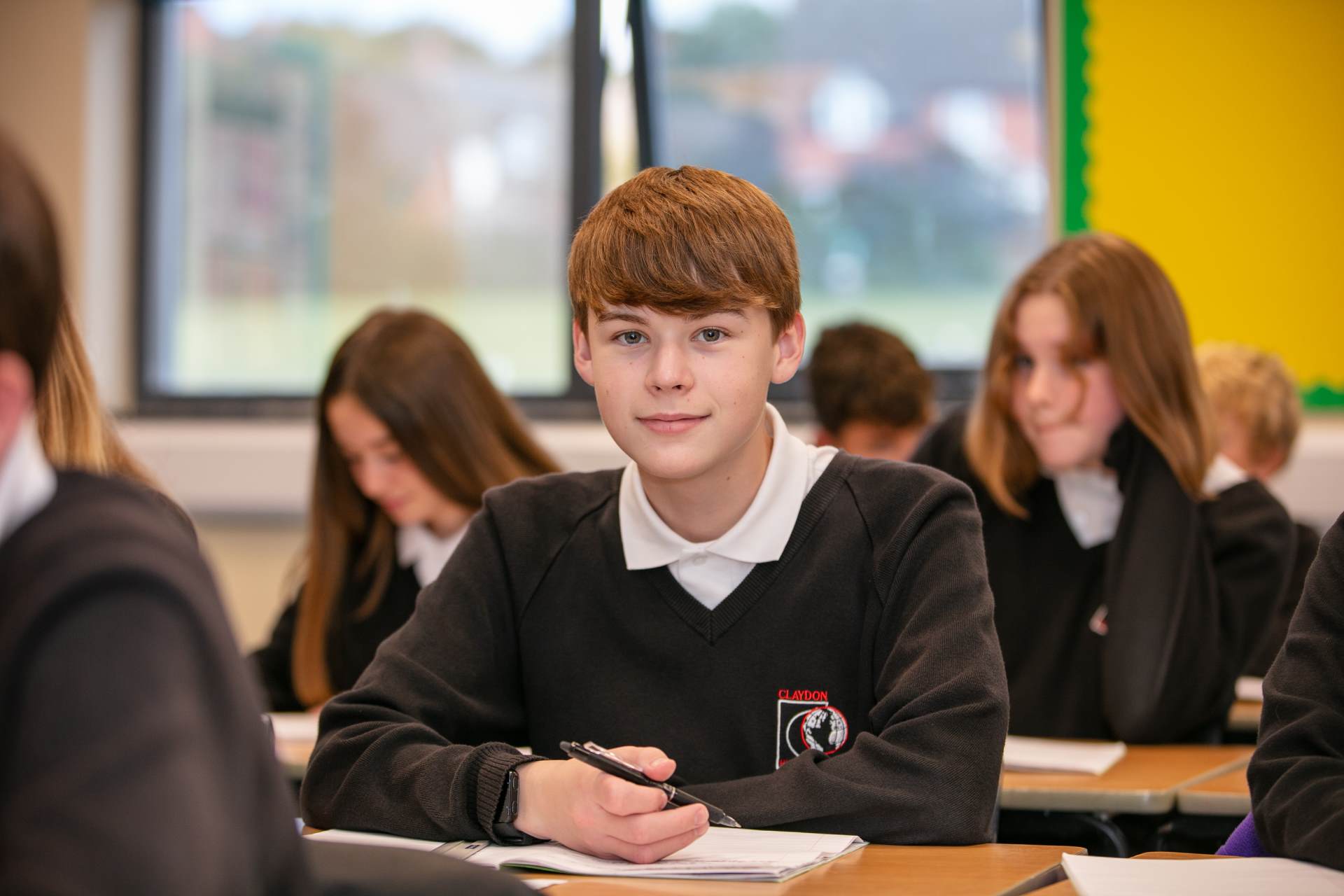Modern Foreign Languages
-
Ms J BexleyHead of Faculty
Ms J Bexley
There are many benefits to learning a foreign language: you can travel the world, meet new people, improve your memory, and universities and employers love linguists too!
 At Claydon High School, either French or Spanish is currently taught to all students in Year 7, 8 or 9 in mixed ability groups. In Year 9, students are encouraged to select a language as one of their options for GCSE. In exceptional cases, two languages at GCSE is a possibility.
At Claydon High School, either French or Spanish is currently taught to all students in Year 7, 8 or 9 in mixed ability groups. In Year 9, students are encouraged to select a language as one of their options for GCSE. In exceptional cases, two languages at GCSE is a possibility.
Students are taught to listen, speak, read and write in the foreign language through a range of activities. Staff conduct their lessons as much as possible in either French or Spanish and students regularly use audio and video clips to help them develop their listening skills. Spontaneous speaking is encouraged through pair/group work, songs and games. For GCSE students there is also the opportunity to speak with a native French or Spanish speaker during the year. Reading skills are developed through the use of whole class reading comprehensions, dictionary work and languages websites. Written work develops from simple statements about themselves in Year 7 to extended writing on a range of topics such as healthy living and the environment at GSCE.
We offer a range of extra curricula activity to support students’ engagement in languages including: French Breakfast (Year 7); MFL Spelling Bee (Yr 7); Opal Coast trip (Years 7-8); BFI film trips (Yr 9); Barcelona trip (KS4 Spanish) and a new trip to Arras (KS4 French).
Key Stage 3
What will I learn?
In KS3 students study four modules per year in each language as well as a cultural focus each term.
Spanish and French |
||
|
Year 7 |
Year 8 |
Year 9 |
|
Personal Information |
Travel and Tourism |
Life as a young person |
|
Family and descriptions |
Festivals and Mealtimes |
Healthy Lifestyles |
|
School |
Leisure/Going out |
Work and future plans |
| Free time and holiday plans |
Where I live |
Social issues |
Currently Spanish students are loosely following the Viva scheme of work and in KS3 French we have adapted the Dynamo course of study. We continue to adapt and improve our curriculum to reflect the new MFL GCSE (first cohort to sit in 2026).
How will I be assessed?
There are progress tests each half term and weekly homework tasks which include vocabulary testing and grammar practice. Students receive regular feedback on how to make progress. There are end of term exams in the four skills – listening, speaking, reading and writing - for every year group.
Key Stage 4 French and Spanish
What will I learn?
Students loosely follow the AQA GCSE scheme of work in their chosen language. Progress is made by acquiring vocabulary in the language and understanding and applying key grammatical structures so that students are able to communicate with increasing ease. Students need to be able to read and listen to the language as well as speak and write it, in order to achieve a passable grade.
By exploring the culture of French/Spanish speaking countries, students are encouraged to develop a positive attitude towards speakers of French/Spanish and other cultures more generally.
Spanish and French |
|
| Year 10 | Year 11 |
| Identity and Relationships | Healthy Living |
| Media and Technology | Education and Work |
| Free Time | Town and Travel |
| Customs and Celebrations | Environment |
How will I be assessed?
The course is assessed through weekly vocabulary tests and end of module assessments as well as two complete mock examinations. The final GCSE examination is in two tiers at the end of Year 11: Higher (grades 9-5) and Foundation (grades 5-1). The assessment covers the four skill areas which are weighted as follows:
- Listening (25%): Students listen to pre-recorded material by native speakers and their comprehension is tested by a range of question types. They also have to transcribe spoken texts.
- Speaking (25%): This is made up of a role play, reading aloud, a photo card and general conversation. It lasts between 10 and 12 minutes and is conducted by the class teacher.
- Reading (25%): Reading comprehension skills are tested by a range of question types, including a translation into English.
- Writing (25%): Students complete a series of essay questions and a translation from English to French/Spanish.
Why languages at GCSE?
This course provides an essential preparation for studying French or Spanish at Sixth Form or simply for enjoying the language in a leisure context. A foreign language is a valuable secondary skill in many careers and an A-Level language is highly valued by employers, particularly as our links with Europe and the rest of the world evolve. Students wishing to
study languages at university are encouraged to pursue a second language, although this can be taken up at university. Many universities look favourably on students with language qualifications, both GCSE and A Level. Many now offer degree courses in which a foreign language can be studied as a subsidiary subject, or jointly e.g. Law and French, Engineering and French, Spanish and International Relations etc.

